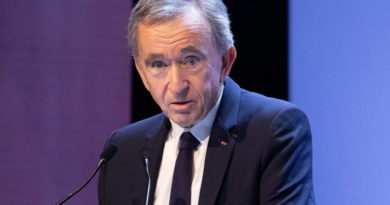An engineering professor warned that people trust self-driving technology so much it’s ‘injuring them or killing them’ a day before Tesla’s massive recall
With more and more car companies putting their self-driving vehicle models on the road, experts are sounding the alarm that some of these cars may be doing more harm than good to drivers.
Elon Musk’s Tesla won’t be the only game in town anymore when it comes to self-driving cars over the next few years. The number of cars in the world with autonomous driving characteristics is set to grow from 20.3 million in 2021 to 62.4 million by 2030, according to a recent report by a markets research firm, and newer companies like Tesla and Uber have been joined by a growing slate of traditional carmakers including BMW, Mercedes-Benz, and General Motors, which plan to launch their own self-driving concepts within the next few years.
But with the market growing, questions are also being raised over autonomous vehicles’ safety standards, with some arguing that the next-generation cars could be a danger to the people getting behind the wheel.
People can get comfortable enough in a self-driving car that they start “overtrusting the technology,” Missy Cummings, an engineering professor at George Mason University and former safety advisor at the National Highway Traffic Safety Administration (NHTSA), told the New York Times in an interview published Wednesday.
Cummings has for years called for more stringent regulation on self-driving cars and had a public run-in with Musk and his legion of online supporters on the matter in 2021. When Cummings was appointed the NHTSA’s safety advisor, a position she held for the next year, Musk wrote on Twitter that her track record was “extremely biased against Tesla.”
In an interview earlier this month published on George Mason University’s website, Cummings said she is “not anti-Tesla,” but against new technologies being implemented irresponsibly. “I just really hate bad tech. And if you’ve got some bad tech that is really dangerous, I’m going to call you out on it,” she said.
Now she’s warning that drivers can become negligent behind an autonomous car’s wheel and put themselves at a higher risk of speeding.
“They are letting the cars speed. And they are getting into accidents that are seriously injuring them or killing them,” she said.
A troubled industry
Between July 2021 and May 2022, there were 392 crashes involving cars equipped with autonomous driving technology, according to the NHTSA, which included five serious injuries and six deaths. Of those total crashes, 273 involved Tesla vehicles, five of which were fatal.
In addition to reported crashes, drivers have flagged several instances of phantom braking, when faulty sensors pick up on non-existent objects and cause Tesla cars on Autopilot to stop or change speed while driving.
Since August 2021, the NHTSA has been investigating Tesla, specifically its Autopilot self-driving feature. In June of last year, the probe was upgraded to an “engineering analysis” status that would expand its scope and enable the NHTSA to demand Tesla to recall vehicles. Last month, NHTSA acting head Ann Carlson told reporters the investigation was proceeding “fast” and the agency had been “investing a lot of resources.”
On Thursday, Tesla recalled every vehicle equipped with the company’s experimental “Full Self-Driving” software—more than 360,000—the NHTSA announced. The recall notice applies to some Model S, Model X, Model Y, and Model 3 vehicles sold between 2016 and 2023. The agency said the software “may cause crashes” as its behavior around intersections and occasional disregard for speed limits are issues that need to be fixed.
The tech could also have a problem with speed limits, and may “not adequately account for the driver’s adjustment of the vehicle’s speed to exceed posted speed limits.”
On Thursday, Musk tweeted a response to someone who said that there should be a different word between a recall and a software update: “Definitely. The word ‘recall’ for an over-the-air software update is anachronistic and just flat wrong!”
Cummings and other road safety advocates have urged consumers to recognize that the self-driving technology car companies offer today is not truly fully autonomous, and drivers need to stay alert even if self-driving features are activated. Cummings also accused Tesla and other companies of overstating autonomous vehicle technology and creating a greater risk for drivers.
“Car companies—meaning Tesla and others—are marketing this as a hands-free technology,” she told the Times. “That is a nightmare.”
Tesla does not have a U.S. public relations department and the company did not immediately respond to Fortune’s request for comment. It did not respond to the Times’ request for comment
Musk has emphasized in past interviews that refining self-driving cars is the next big target at Tesla.
“The overwhelming focus is solving full self-driving,” Musk said during an interview last June with an official Tesla enthusiast club. “That’s essential, and that’s really the difference between Tesla being worth a lot of money and being worth basically zero.”
But Tesla, and all companies piling into the self-driving car space, will have to move more cautiously if Cummings has her way and convinces the government to put more regulations on how autonomous vehicles are made and when drivers can use self-driving features.
“The technology is being abused by humans,” she said. “We need to put in regulations that deal with this.”
Other road safety advocates have made similar pleas for regulators to get more involved. Ralph Nader, the activist lobbyist who was one of the first public figures to make public calls for better vehicle safety standards, has also been critical of Tesla and unregulated autonomous cars.
“I am calling on federal regulators to act immediately to prevent the growing deaths and injuries from Tesla manslaughtering crashes with this technology,” he wrote in a statement last August.
Learn how to navigate and strengthen trust in your business with The Trust Factor, a weekly newsletter examining what leaders need to succeed. Sign up here.


